Messy Trans Teens In Coming-of-Age Horror
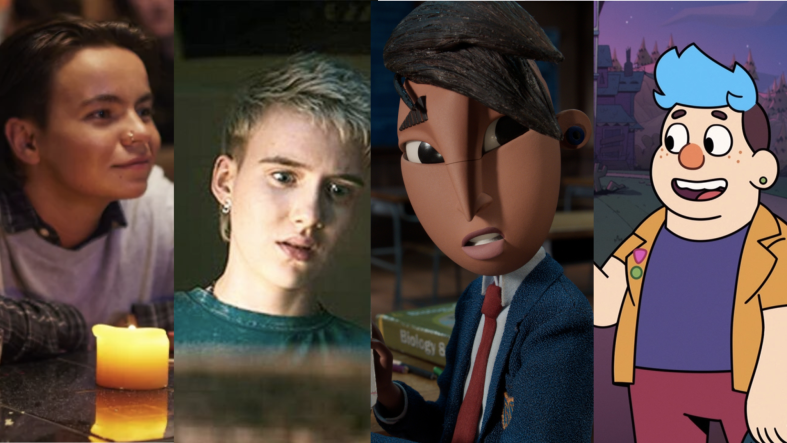
Teenagers aren’t perfect. It’s a fact that adults acknowledge when they prattle on about how “you’ll see things differently when you’re older” or “I remember all the bad decisions I made when I was your age…”. Teenagers find themselves bombarded by changing bodies, shifting priorities, and the question of “Who am I?”, all while struggling beneath the weight of authority. But teenagers, even when they make mistakes, learn things about the world and themselves as they navigate these new situations. We adore coming-of-age films like Lady Bird, Book Smart, and Juno because watching teenagers struggle, learn, and triumph is entertaining to us. But, it’s also relatable because by watching teens fuck up and grow up, we’re reminded that we too are imperfect and make mistakes.
But throughout the world, trans teenagers aren’t given the same opportunity as their cis counterparts to make mistakes as they grow up. With parents and politicians alike pushing to sanitize schools of LGBTQIA+ influence and ban trans-affirming healthcare, trans teenagers and their lives have been put under a microscope, with anything they do serving as a piece of evidence for the right to strip away their rights.
It’s clear by the anti-trans bigotry being spewed that our opponents view trans people as nebulous threats, preying on their children from the shadows like a monster, instead of seeing them as human beings. And while some may argue that the only way to fight ignorance is to normalize trans people in the public eye by casually incorporating them into ad campaigns and blocker films, mainstream portrayals of trans people are rare. Those we do have, such as Buffalo Bill’s portrayal as a crazed “transexual” in Silence of the Lambs, aren’t exactly flattering.
Luckily, recent coming-of-age stories featuring trans characters are proving the importance of varied, diverse trans representation by creating stories that don’t purely focus on a character’s transness, but also the struggles they face outside of their identities.
Learning To Speak Up In Dead End: Paranormal Park
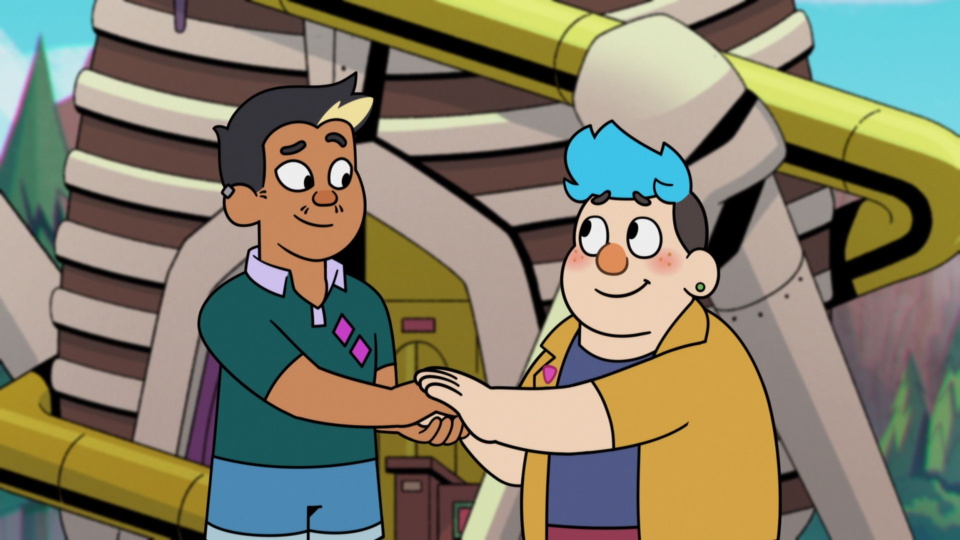
While accepting one’s transness is a coming-of-age experience regardless of age, Dead End: Paranormal Park, a YA television adaptation of Hamish Steele’s horror graphic novel DeadEndia, tackles the difficulty of acknowledging your transness at the crucial intersection of teenagehood and young adulthood. At the start of the series, co-protagonist Barney (Zach Barack), a trans teen who recently came out of the closet, finds himself working and secretly living at an amusement park.
Barney is living in the park of his own volition after his parents failed to correct his grandmother for misgendering him. Barney’s issue with his parents comes down to his difficulty with expressing and communicating what kind of support he needs from his parents. His coming-of-age arc focuses less on battling transphobia and more on learning to advocate for himself and express his emotions.
In a world where transphobic parents ignore the feelings of their trans children, Barney’s story presents a crucial lesson of learning to speak up, voice one’s feelings, and choose one’s self over others’ feelings. But this isn’t a lesson Barney learns in therapy. Instead, he learns to stand up for himself by battling off demons and angels alike. Dead End: Paranormal Park follows in the tradition of other horror-adjacent animated television such as Gravity Falls or Courage the Cowardly Dog with Barney and the other characters often having their lessons doled out in the form of some horror beyond our imagining.
For example, in one of my favorite episodes, Barney is tasked to supervise a children’s overnight birthday party, only to discover his younger brother is attending the event. This causes Barney to spend the party hiding in a mascot costume to prevent his brother from noticing him and demanding to know why he left home. But as the children eventually summon a demonic creature, Barney is forced to reveal his true identity to save his brother, coming to understand the bond between siblings is one that cannot be ignored. This near-death experience causes Barney to realize that his sudden disappearance was unfair to his younger sibling and causes the pair to reconnect. Once again, horror proves an excellent medium for conveying messages beneath the flashy guise of the speculative and horrifying.
Being The Optimist in Wendell & Wild
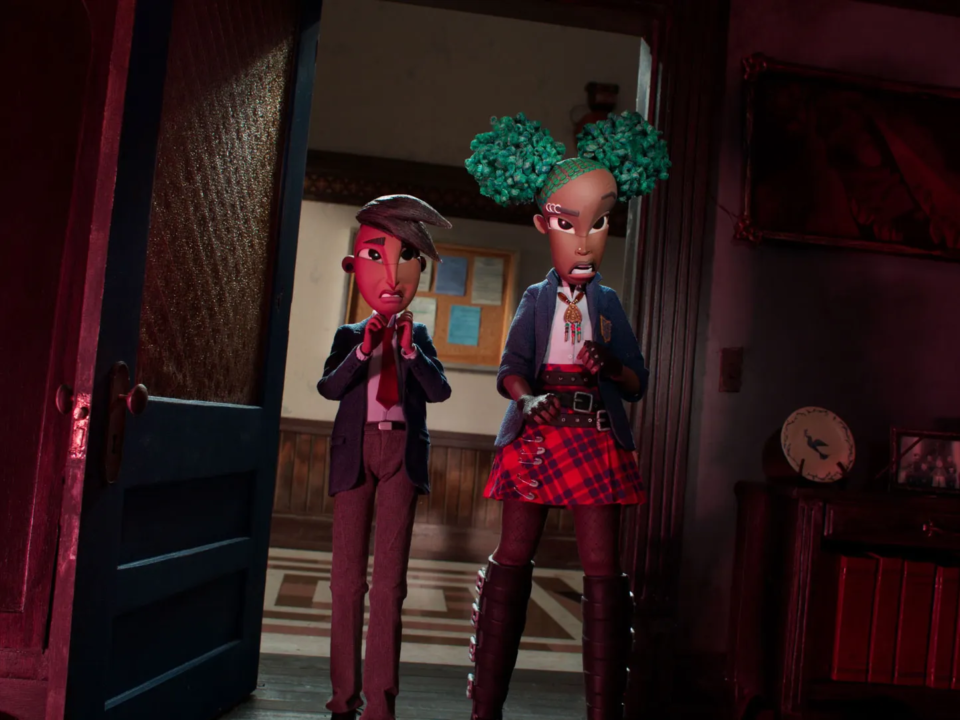
2022’s Wendell & Wild, a stop-motion horror film from Coraline director Henry Selick and writer Jordan Peele, follows Kat (Lyric Ross), a punk-rock-loving teenager, who finds herself living at Rust Bank Catholic School for Girls after her parents’ tragic death. Kat is immediately an outsider to the school’s preppy student body, in part due to her anti-establishment attitude, but mostly because supernatural happenings seem to follow Kat. After ending up in detention, Kat meets Raúl (Sam Zelaya), a trans male student who is ostracized after coming out. While Kat is initially standoffish and refuses to make friends, Raúl’s social isolation pairs nicely with Kat’s anti-establishment attitude.
Kat soon discovers she can summon the demons Wendell and Wild (Keegan-Michael Key and Jordan Peele, respectively) who claim they can resurrect Kat’s parents using a magic hair crème. However, the demons quickly deceive Kat and partner with the owners of the evil Klax Corp to resurrect city council members to get the votes to demolish the town and build a prison.
Some may argue that Raúl is Kat’s sidekick. However, he is a crucial foil needed to catalyze Kat’s character growth and push her to do right. While Kat is a pessimistic punk, Raúl is an optimist who believes that Rust Bank can return to greatness. Despite lacking Kat’s supernatural powers, Raúl is equally powerful due to his cleverness and ability to persist despite people deadnaming and dismissing him.
While Kat insists that Wendell and Wild are her allies, it is Raúl who finds evidence that they are deceiving her. With his help, Kat steals the demons’ magic hair crème to resurrect victims of a tragic root beer factory fire to prove that the Klaxtons intentionally set the fire to pave way for their prison. Raúl pushes the boundaries of trans representation because he isn’t a trans character beaten down by the bigotry he faces. Rather, he takes it as a challenge to prove his own worth and support his fellow outcasts.
Trans Teens Who Make Questionable Decisions in Evil Dead Rise
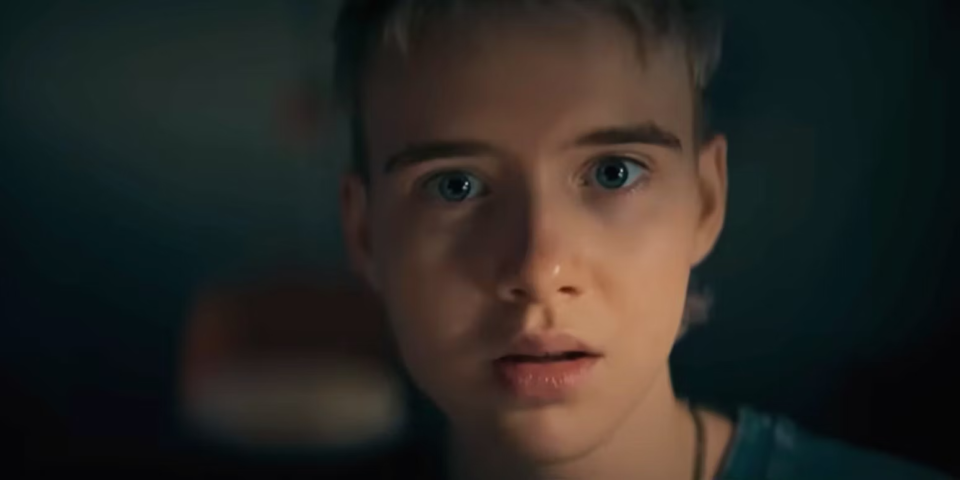
While we must advocate for the inclusion of trans storylines not purely focused on transness, there is another argument occurring online: that it is crucial that trans characters don’t villainize or perpetuate stereotypes. However, this argument lacks nuance, antagonizing queer creatives who create imperfect, messy, and even evil trans characters. If trans characters must be seen as perfect, we are ignoring that trans people experience the ups and downs of the human experience just like anyone else.
The latest entry in the Evil Dead franchise, 2023’s Evil Dead Rise, succeeds in portraying a trans character who is quite messy and makes a lot of mistakes. The film tells the story of a trio of siblings, their aunt, and their mother who are attacked by supernatural, violent forces while trapped in their soon-to-be-condemned apartment building. Trans teenager Danny, played by Morgan Davies, is visibly trans, but Evil Dead Rise doesn’t tackle his transness. Rather, Danny is simply portrayed as a creative, curious, and slightly mischievous teenager. After an earthquake unveils a secret vault in the building’s basement, Danny trespasses and finds a copy of the dreaded Necronomicon. This discovery ultimately results in the possession of Danny’s mother and her violent attack of him, his sisters, and their aunt.
If Danny had just minded his business, one could argue that his family would have survived, the book would have been destroyed, and any bloodshed would have been prevented. However, what I think is so revolutionary regarding the trans representation in Evil Dead Rise is that Danny is simply portrayed as a teenager who made a mistake. Just like any other teen, Danny isn’t perfect. Though he feels guilt for what he inadvertently released, his aunt Beth makes it clear to him that he made a mistake, but what happened afterward isn’t his fault.
Throughout the remainder of the film, Danny tries his hardest to right his wrong, going as far as putting himself in grave danger to protect his sisters and aunt. In a world where trans teens are villainized, allowing a trans character to simply make mistakes without villainizing them is crucial representation.
Poorly Planned Party Tricks In Talk To Me
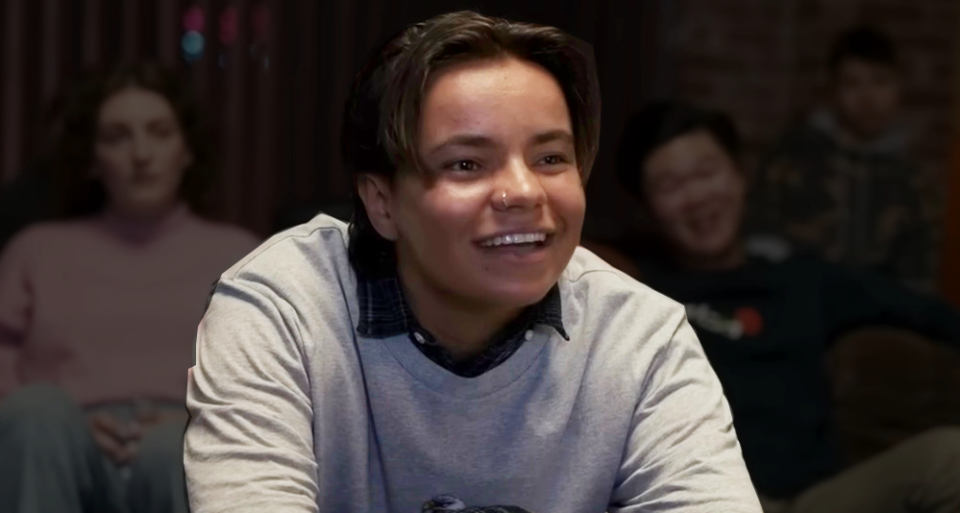
Australian supernatural horror film Talk To Me (2023) continues the trend of an imperfect trans character being casually incorporated without having to address the character’s gender identity. Transmasculine and non-binary actor Zoe Terakes plays Hayley, a teen who chauffeurs around the disembodied hand of a psychic to other teen thrillseekers in a sort of “Flatliners, except with consensual demonic possession” party game. While Hayley is more of a supporting character, they act as an enabler who pressures their peers into undergoing possession with the hopes of bolstering Hayley’s reputation and social media presence.
When the party game results in the violent injury of one of the party’s younger siblings, Hayley turns from a tough, confident person into a panicked child. As the film’s protagonists search for a means to reverse the effects of the possession, Hayley is constantly stammering, unable to give any concrete advice in undoing what the teens have done or disclose information about the history of the supernatural totem. While Hayley tries their best to help, unlike Danny from Evil Dead Rise, they truly lack the tools to handle the can of cosmic worms they cracked open. While Hayley doesn’t redeem themselves by the end of the film, it’s great to get trans fuckup representation in the media when so many trans characters in mainstream films tend to be token minorities.
We Need More Trans Representation Like This
Conservatives love to hate trans representation, especially representation for trans youth. But in an era where their bigotry is gaining traction and intensity, it becomes even more crucial that we praise and promote creatives who are unafraid to show that trans teens are just like any other teenagers. DeadEnd: Paranormal Park, Wendell & Wild, Evil Dead Rise, and Talk to Me all succeed with their trans representation, because they normalize trans teens experiencing the ups and downs of adolescence as they learn to communicate their feelings, advocate for themselves, and learn from their mistakes. Instead of simply providing token representation or showing the suffering of trans teens, these shows and films remind us that trans teens are simply that: teenagers.
Categorized:Editorials

